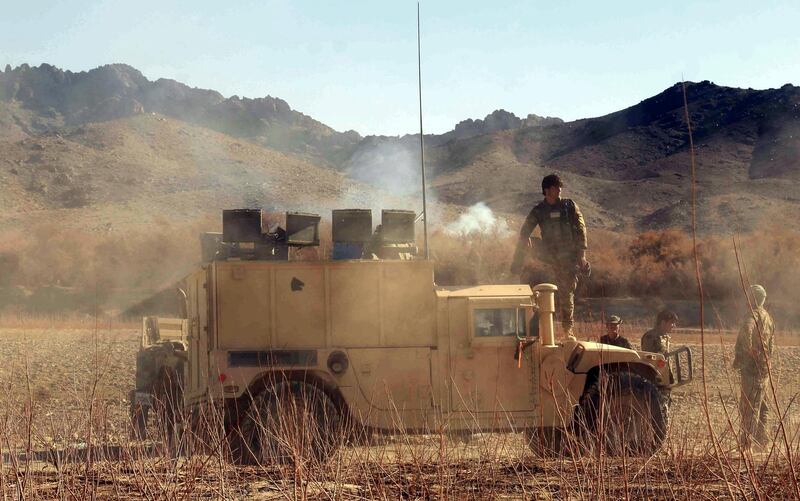The Taliban and the United States have cancelled the latest round of peace talks after it was unexpectedly moved to Qatar, citing disagreements over the agenda.
Two days of talks were cancelled on Tuesday over the US's push for the involvement of Afghan officials, discussions over a ceasefire and the details of the Taliban's request of a prisoner exchange.
"The US officials insisted that the Taliban should meet the Afghan authorities in Qatar and both sides were in disagreement over declaring a ceasefire in 2019," a Taliban source told Reuters.
"Both sides have agreed to not meet in Qatar."
The two sides were due to meet for two days starting on Wednesday in Qatar where the Taliban have their embassy.
It would have been the fourth round of talks between the Taliban and the United States Special Envoy to Afghanistan Zalmay Khalilzad, in recent months.
The Taliban wanted a US withdrawal, a prisoner exchange and a lifting of the ban on movement of their leaders, one told Reuters.
They said they demanded the release 25,000 prisoners and they would free 3,000 but the United States were not ready to discuss that.
But the Taliban refuse to agree to US demands that the Afghan government attend, saying they are simply a proxy of America – their real enemy.
The US is seeking a lasting peace to the country's longest war, which as cost nearly 1 trillion dollars and thousands of lives.
_______________
Read more:
[ Taliban blames US and Afghan forces for most civilian casualties in 2018 ]
[ Iran says they held Taliban talks as Afghan peace push continues ]
[ Afghans brace for an even deadlier 2019 as hope for peace fades ]
_______________
Zalmay Khalilzad was appointed US special envoy to Afghanistan in September 2018, but the Taliban say they do not think he has enough power.
Mr Khalilzad still intends to visit the United Arab Emirates, Afghanistan, Pakistan, India and China to continue the discussions, the Taliban said, but his office was not available to confirm the details.
Previous talks in Qatar and the UAE have focussed on confidence building and leading to an intra-Afghan peace solution.
The next round of talks were supposed to take place in Saudi Arabia in February, but on Tuesday Taliban officials said they would take place on Wednesday in Qatar.
Wednesday’s discussions were also due to only include the United States and the Taliban, contrary to previous talks in which Pakistan, Saudi Arabia, and the UAE were involved.
Iran says they are holding parallel talks with the Taliban.
Afghanistan's President Ashraf Ghani is anxious to meet with the Taliban ahead of presidential elections taking place in June this year.
The country is going through a particularly bloody period and civilians are bearing the brunt of the diplomatic impasse.
Suicide bombings are a near daily occurrence and as much as 45 per cent of the country is disputed or under Taliban rule.
The war was waged by an international coalition led by the United States in the wake of the September 11 terror attacks. The Taliban were ousted from power but quickly developed a potent insurgency, using porous borders with Pakistan for shelter.
At their peak, the United States had 100,000 troops stationed in the country, but in 2014 they withdrew most of their forces, handing over the principal security operation to the Afghan National Army.
Now a US-led Nato operation, Operation Resolute, provide counterterrorism and air support to the Afghan army.
As peace talks gained momentum a draft agreement drawn up by the influential US think tank RAND Corporation outlining the clauses for a potential peace deal was circulated among Afghan officials and diplomats in Kabul.
The document, reviewed by Reuters, suggests that the United States and Nato withdraw their military missions in phases over an expected period of 18 months, but the United States may continue providing civilian assistance.





